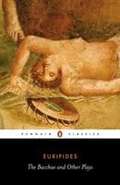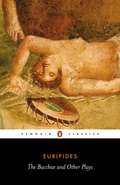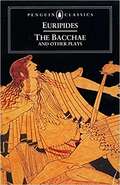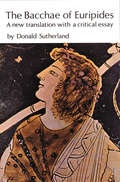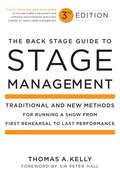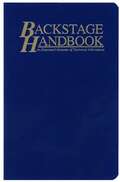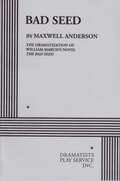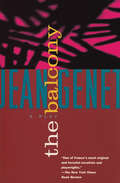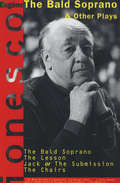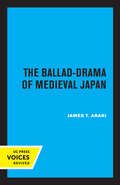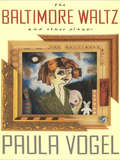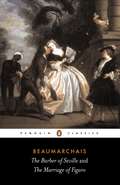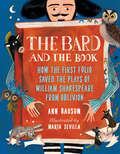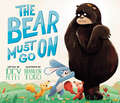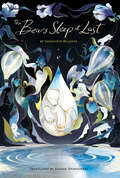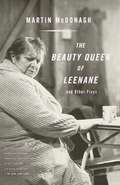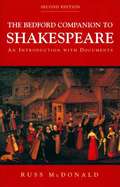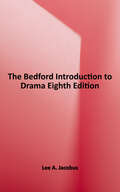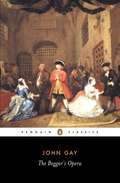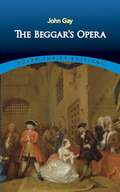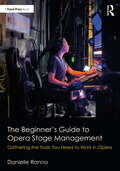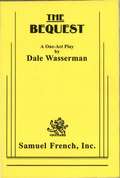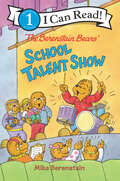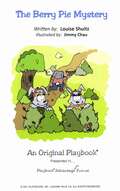- Table View
- List View
The Bacchae and Other Plays
by EuripidesThrough their sheer range, daring innovation, flawed but eloquent characters and intriguing plots, the plays of Euripides have shocked and stimulated audiences since the fifth century BC. <p><p> Phoenician Women portrays the rival sons of King Oedipus and their mother's doomed attempts at reconciliation, while Orestes shows a son ravaged with guilt after the vengeful murder of his mother. <p><p> In the Bacchae, a king mistreats a newcomer to his land, little knowing that he is the god Dionysus disguised as a mortal, while in Iphigenia at Aulis, the Greek leaders take the horrific decision to sacrifice a princess to gain favour from the gods in their mission to Troy. <p><p> Finally, the Rhesus depicts a world of espionage between the warring Greek and Trojan camps.
The Bacchae and Other Plays
by EuripidesThrough their sheer range, daring innovation, flawed but eloquent characters and intriguing plots, the plays of Euripides have shocked and stimulated audiences since the fifth century BC. Phoenician Women portrays the rival sons of King Oedipus and their mother's doomed attempts at reconciliation, while Orestes shows a son ravaged with guilt after the vengeful murder of his mother. In the Bacchae, a king mistreats a newcomer to his land, little knowing that he is the god Dionysus disguised as a mortal, while in Iphigenia at Aulis, the Greek leaders take the horrific decision to sacrifice a princess to gain favour from the gods in their mission to Troy. Finally, the Rhesus depicts a world of espionage between the warring Greek and Trojan camps.
The Bacchae and Other Plays: Ion the Women of Troy Helen the Bacchae
by Philip VellacottThe plays of Euripides have stimulated audiences since the fifth century BC. This volume, containing Phoenician Women, Bacchae, Iphigenia at Aulis, Orestes, and Rhesus.
The Bacchae of Euripides: A New Translation with a Critical Essay
by Euripides Donald SutherlandThis new translation of The Bacchae—that strange blend of Aeschylean grandeur and Euripidean finesse—is an attempt to reproduce for the American stage the play as it most probably was when new and unmutilated in 406 B.C. The achievement of this aim involves a restoration of the "great lacuna" at the climax and the discovery of several primary stage effects very likely intended by Euripides. These effects and controversial questions of the composition and stylistics are discussed in the notes and the accompanying essay.
The Back Stage Guide to Stage Management, 3rd Edition
by Thomas A. KellyThe Most Widely Used Manual For Aspiring And Veteran Stage Managers - Now Revised and ExpandedThe next best thing to shadowing a Broadway stage manager, this detailed, behind-the-scenes book as been brought completely up to date. First published in 1991, it is widely used and has been lauded as the most comprehensive, educational book on stage management available. From preproduction planning and first rehersals to opening night and final strike, all the essentials of the profession are presented here in a friendly, engaging style.Blending how-to information with anecdotes from his own career, author Thomas A. Kelly explains the entire theatrical process, including:- Organizing all rehearsals and performances- Maintaining the working script, cue sheets, and daily records- Supervising the technical aspects of the show- Running shows outdoors and at other non-theatrical venues- Dealing with performers and crew members on all levelsThis new edition reflects all the latest developments and innovations in the industry and adds a totally new chapter on opera stage management, complete with an in-depth breakdown of the challenges this style of production presents. The text is supported by sample documents, diagrams, and charts that straddle time-honored approaches with what can be generated by today's computer software. All the latest stage machinery is discussed, along with tips on finding employment. This guide remians the first choice for anyone who works in any branch of the profession, whether amateur, educational, or professional.From the Trade Paperback edition.
The Backstage Handbook: An Illustrated Almanac of Technical Information
by Paul Carter George ChiangFirst published in 1988, Backstage Handbook is one of the most widely used stagecraft textbooks in the United States, with about 10,000 copies sold every year. <p><p> This handy reference book brings together under one cover an incredible variety of information useful to designers, technicians and students who work behind the scenes in theatre, film and television. Its sturdy leatherette binding will stand up to years of constant use. <p><p> The third edition updates this popular reference book with new terminology and materials, and adds dozens of new illustrations of grip hardware, film lighting equipment and painting tools. Backstage Handbook includes chapters on Tools, Hardware, Materials, Electrics, Shop Math, Architecture and Theatre. There are hundreds of illustrations, tables and charts which cover everything from the stock sizes and specs of wood screws, to safe working loads for several kinds of rope, to illustrations of twenty-two types of standard lamp bases.
The Bad Seed
by William March Maxwell AndersonPresents a dramatization of March's novel featuring Rhoda Penmark, who uses her strange powers and talent for evil to force others to give her what she wants.
The Balcony: A Play (Faber Library #Vol. 27)
by Jean GenetIn the midst of a war-ravished city, a brothel caters to the elaborate role-playing fantasies of men from all walks of life. These perverse costumed masquerades parody and stylize the nature of the anarchic political struggle that rages outside. In a stunning series of macabre scenes, Genet presents his caustic view of man and society.
The Bald Soprano: & Other Plays (Books That Changed the World)
by Eugène IonescoThis Absurdist masterpiece by the author of Rhinoceros “is explosively, liberatingly funny…a loony parody with a climax which is an orgy of non-sequiturs” (The Observer).Written in 1950, Eugene Ionesco’s first play, The Bald Soprano, was a seminal work of Absurdist theatre. Today, it is celebrated around the world as a modern classic for its imagination and sui generis theatricality. A hilarious parody of English manners and a striking statement on the alienation of modern life, it was inspired by the strange dialogues Ionesco encountered in foreign language phrase books.Ionesco went on to become an internationally renowned master of modern drama, famous for the comic proportions and bizarre effects that allow his work to be simultaneously hilarious, tragic, and profound. As Ionesco has said, “Theater is not literature. . . . It is simply what cannot be expressed by any other means.”
The Ballad-Drama of Medieval Japan
by James T. ArakiThis title is part of UC Press's Voices Revived program, which commemorates University of California Press’s mission to seek out and cultivate the brightest minds and give them voice, reach, and impact. Drawing on a backlist dating to 1893, Voices Revived makes high-quality, peer-reviewed scholarship accessible once again using print-on-demand technology. This title was originally published in 1964.
The Baltimore Waltz and Other Plays
by Paula VogelThe Baltimore Waltz, Vogel's most personal play, centers around the memory of a loved one lost to AIDS; the other plays include, Desdemona, The Oldest Profession, And Baby Makes Seven, and Hot 'n' Throbbing.
The Barber of Seville and The Marriage of Figaro
by Pierre-Augustin BeaumarchaisA French courtier, secret agent, libertine and adventurer, Beaumarchais (1732-99) was also author of two sparkling plays about the scoundrelly valet Figaro - triumphant successes that were used as the basis of operas by Mozart and Rossini. A highly engaging comedy of intrigue, The Barber of Seville portrays the resourceful Figaro foiling a jealous old man's attempts to keep his beautiful ward from her lover. And The Marriage of Figaro - condemned by Louis XVI for its daring satire of nobility and privilege - depicts a master and servant set in opposition by their desire for the same woman. With characteristic lightness of touch, Beaumarchais created an audacious farce of disguise and mistaken identity that balances wit, frivolity and seriousness in equal measure.
The Bard and the Book: How the First Folio Saved the Plays of William Shakespeare from Oblivion
by Ann BausumThe unlikely true story of why we know the name William Shakespeare today, and the four-hundred-year-old book that made it possible.Four hundred years ago, no one bothered to write down the exact words of stage plays. Characters&’ lines were scribbled on small rolls of paper (as in, an actor&’s role) and passed around, but no master script was saved for the future. The main reason we&’ve heard of Romeo, Juliet, Hamlet, and Shakespeare himself is that a group of people made the excellent choice to preserve the plays after the Bard died. If they hadn&’t created the book known as the First Folio, Shakespeare and his works would surely have been lost to history. Part literary scavenger hunt (the search for every existing First Folio continues today), part book trivia treasure trove, and part love letter to Shakespeare, this behind-the-scenes, sharply funny true story is an ideal introduction to the Bard and his famous plays.
The Bear Must Go On
by Dev PettyIn this hilarious story of theatrical hijinks, plans go awry when four woodland friends stage a show--unless Bear can step up and save the day!Bear and his woodland friends are putting on a show, and there are lots of plans to be made. Their curtains need sequins! Their hats must be very, very tall! And their tickets have to be shiny! (No one will come if the tickets are dull.)Behind the scenes, shy Bear takes notes on every detail until his paws ache. But at least he won't have to go on stage. He could NEVER do that!. . . Or could he?In this uproarious tale of theatrical mishaps told with hilariously endearing art, four woodland friends bring down the house--and have plenty of fun along the way.Praise for The Bear Must Go On:"A snort-inducing lesson of both bravery and preparation." --Kirkus Reviews"The rewarding finale . . . applauds facing one's fears, being a good friend, and keeping an eye on the big picture." --Publishers Weekly"Witty and wonderful . . . A cheerful story, conveying the joy of creation, the fun of friendship, and the beauty of stepping outside one's comfort zone." --Booklist"Youngsters who find the spotlight too bright might be inspired by Bear's turn on the stage, and show stealers may also reconsider and revalue the contributions of pals who stay behind the scenes." --BCCB"This playful and endearing story offers young readers a heartfelt message about collaboration and overcoming fear, making it an excellent choice for most collections." --SLJ
The Bears Sleep at Last
by Geneviève BilletteTheir whole bodies are ready for sleep, but sleep doesn’t come. The cold has deserted winter, causing the polar bears in the zoo to pace in an endless quest for sleep. Their caretaker, Sasha, will do anything to bring them slumber. But when a boy named Marcus suddenly appears at his window, bringing a different outlook on the meaning of family, Sasha finds himself buried under new responsibilities—such as packing lunches and reading bedtime stories—rather than snow. And so he keeps going back to the bears, believing that he’ll find relief by the day that’s circled on the calendar, but missing Marcus’s pleas for attention and care. Woven through a delicate and charming balance of the unique and familiar, this ethereal, melancholy play for young audiences brings light and warmth to wintering hearts.
The Beauty Queen Of Leenane And Other Plays
by Martin McdonaghThese three plays are set in a town in Galway so blighted by rancor, ignorance, and spite that, as the local priest complains, God Himself seems to have no jurisdiction there. The Beauty Queen of Leenane portrays ancient, manipulative Mag and her virginal daughter, Maureen, whose mutual loathing may be more durable than any love. In A Skull in Connnemara, Mick Dowd is hired to dig up the bones in the town churchyard, some of which belong to his late and oddly unlamented wife. And the brothers of The Lonesome West have no sooner buried their father than they are resuming the vicious and utterly trivial quarrel that has been the chief activity of their lives. "[McDonagh is] the most wickedly funny, brilliantly abrasive young dramatist on either side of the Irish Sea.... He is a born storyteller."--New York Times
The Bedford Companion to Shakespeare: An Introduction with Documents
by Russ McdonaldProviding a unique combination of well-written, up-to-date background information and intriguing selections from primary documents, The Bedford Companion to Shakespeare introduces students to the topics most important to the study of Shakespeare in their full historical and cultural context.
The Bedford Introduction to Drama, Eighth Edition
by Lee A. JacobusWith plays dating back to ancient Greece, Bedford Introduction to Drama teaches you to think critically about drama while learning about the history, theater design, staging, and acting style for each era of the theater.
The Beggar's Opera
by John GayThe tale of Peachum, thief-taker and informer, conspiring to send the dashing and promiscuous highwayman Macheath to the gallows, became the theatrical sensation of the eighteenth century.In THE BEGGAR'S OPERA, John Gay turned conventions of Italian opera riotously upside-down, instead using traditional popular ballads and street tunes, while also indulging in political satire at the expense of the Prime Minister, Sir Robert Walpole. Gay's highly original depiction of the thieves, informers, prostitutes and highwaymen thronging the slums and prisons of the corrupt London underworld proved brilliantly successful in exposing the dark side of a corrupt and jaded society.
The Beggar's Opera (Dover Thrift Editions)
by John GayThe great lords and powerful public officials of early 18th century England are represented as highwaymen and thieves in this deliciously satirical ballad opera. In addition to its burlesque of the contemporary vogue for Italian operatic styles, John Gay's 1728 masterpiece ridicules a broad spectrum of political figures and social conventions -- marriage, lawyers, trade, and even Walpole, the prime minister. Depicting crime and vice at every level of society, The Beggar's Opera offers a witty and powerful indictment of greed, hypocrisy, and corruption in all social classes. When Peachum, a receiver of stolen goods, discovers that a notorious highwayman has eloped with his daughter, the wily old villain turns informer and collects the reward money as his prospective son-in-law is hauled off to prison. Events take an increasingly absurd turn as the dashing outlaw romances the jailer's daughter and effects an escape, only to return to the shadow of the gallows for a farcical climax that parodies the sentimental tragedy of the day. The Beggar's Opera is in the satirical tradition of Swift and Pope. Its enduring relevance was recognized two centuries later by Bertolt Brecht and Kurt Weill, who used it as the basis for their landmark musical, The Threepenny Opera. This attractive, inexpensive edition of an influential comic gem will be applauded by theater lovers, students of literature and history, and other readers.
The Beginner’s Guide to Opera Stage Management: Gathering the Tools You Need to Work in Opera
by Danielle RannoThe Beginner’s Guide to Opera Stage Management is the first book to cover theatrical stage management practices specifically for opera productions, providing an invaluable step-by-step guide. Beginning with a brief history of opera and detailing its difference from musical theatre, the book covers stage management best practices through prep, rehearsals, tech, performance, and wrap up. From the moment a manager accepts a contract, right through to archiving paperwork, this essential toolkit covers each step of a stage manager’s journey. Working with a score, reading music, working with singers, conductors, and musicians, basic duties of a stage manager versus an assistant stage manager, and other tasks specific to opera are also included in this comprehensive guide. This book is full of tips and tricks, as well as the good, bad, and ugly stories from opera stage managers, sharing both their experiences and mistakes. This is the perfect how-to book for the professional or emerging stage manager looking to work in opera, or to expand their existing stage management skillset.
The Bequest: A One-act Play
by Dale WassermanComic drama / 3m, 3f / Eyebrows rise in a small town in Wisconsin when a notorious playboy dies leaving a large bequest to a local resident, the lovely and beloved wife of a local newspaper reporter. She refuses to explain why this windfall has come her way. "A polished miniature from a playwright better known for his blockbusters ... a wicked, witty look at such piquant matters as male female politics, the secret nature of women, and that little green demon known as retroactive jealousy. In the bargain, it's a sexy sort of whodunnit which will go on teasing your mind well after the curtain's down." - What's On. FEE: $45 per performance.
The Berenstain Bears' School Talent Show (I Can Read Level 1)
by Mike BerenstainThe Berenstain Bears take part in the school talent show in this exciting addition to the classic New York Times bestselling series.From the cub’s magic tricks to Trudy’s yodeling, any student can be in the show. All you need is a talent! Beginning readers will enjoy this fun tale about their favorite family of bears.The Berenstain Bears' School Talent Show is a Level One I Can Read book, which means it's perfect for children learning to sound out words and sentences.
The Berry Pie Mystery
by Louise Shultz Jimmy ChauIt’s time for the Forest Festival, and everyone is baking their favorite pies to share … but someone is stealing the pies! Does someone have a greedy appetite, or is there actually a fun surprise for everyone? <p><p> • Grade: 1-3 <p> • Playbooks Reading Levels: Stages 1-4 <p> • Topic: Community
